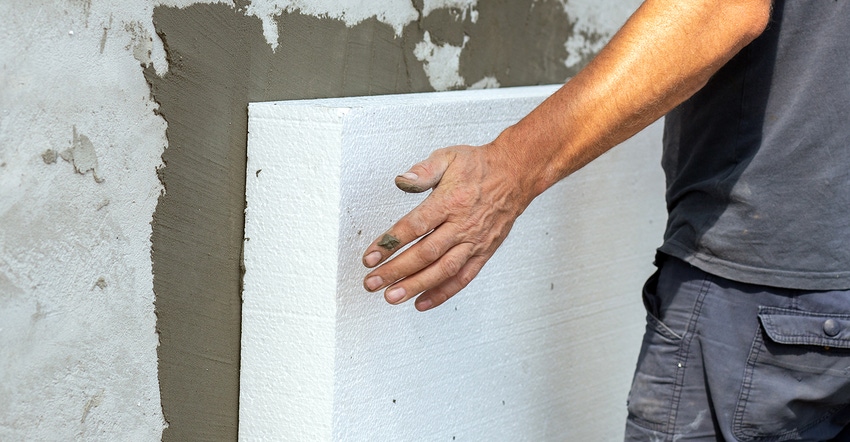Despite Packaging Bans, Demand for Expanded Polystyrene Is Growing
Foamed expanded polystyrene currently accounts for about half of home insulation applications, and demand is expanding by more than 3% annually.
June 11, 2023

Yes, bans on the use of expanded polystyrene (EPS) in food and other packaging are proliferating — most recently in Los Angeles, San Diego, and the state of Oregon — but the material is far from moribund. In fact, foamed EPS is in great demand for home insulation — it currently accounts for almost half of insulation applications and demand is expected to grow 3.3% per year and reach 4.8 million metric tons in volume by 2026, according to a new study from the Freedonia Group.
Low cost and light weight make EPS material of choice
The continued use of concrete building methods is helping to bolster demand for plastic insulation, as EPS enhances insulation without affecting structural strength, said Freedonia. EPS is also very popular with makers of industrial and heating, ventilation, and air conditioning (HVAC) equipment because of its low cost, light weight, and conformability.
The study, Global Foamed Plastic Insulation, can be purchased and downloaded from the Freedonia Group website.
Rising energy costs driving demand for EPS
In a separate news release from February 2023, market research company Ceresana noted that rising energy costs are driving demand for insulation materials, even during a soft construction cycle. The reason is simple, according to the firm: The energy savings made possible by thermal insulation far exceed the cost.
For example, a non-insulated house wall loses the equivalent of around 158 liters (almost 40 gallons) of heating oil per square meter (10.7 square feet) within 20 years, whereas a very well insulated wall loses only 20 liters (a little over 5 gallons), according to Ceresana.
Improved building insulation is a key objective of Europe’s “green deal,” adds the market analyst, noting that the European Union is slated to invest approximately €200 billion a year in energy upgrades for homes and public buildings by 2030. “Manufacturers and processors of expandable polystyrene are benefiting particularly from these initiatives,” said Ceresana.
The fifth edition of its Market Study: Expandable Polystyrene (EPS), available for purchase, includes historical production volume by region with forecasts through 2032, in-depth analysis of market data for the 25 most important countries, and profiles of the 46 most significant EPS manufacturers.
About the Author(s)
You May Also Like




